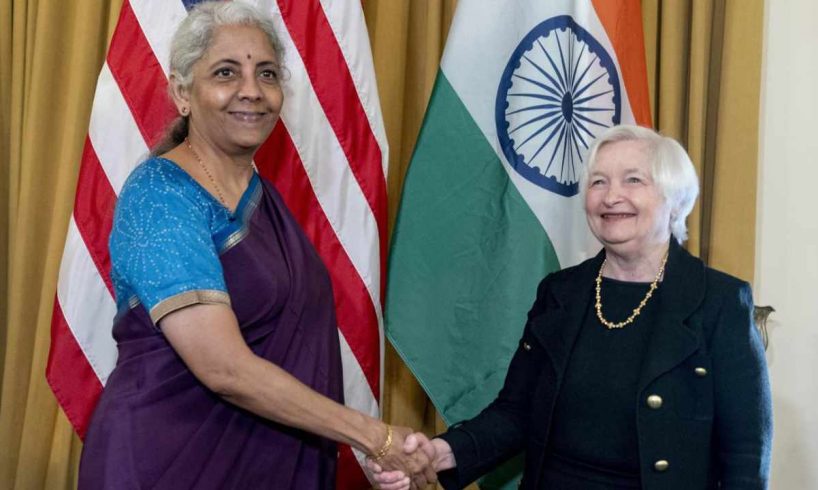
U.S. Treasury Secretary Janet Yellen and Indian Finance Minister Nirmala Sitharaman discussed crypto regulation during the ninth India-U.S. Economic and Financial Partnership meeting. They stressed the importance of international cooperation and setting high regulatory standards globally.
US and India Discuss Issues Surrounding Crypto
Indian Union Minister of Finance & Corporate Affairs Nirmala Sitharaman and U.S. Treasury Secretary Janet L. Yellen discussed cryptocurrency regulation Friday during the ninth meeting of the India-U.S. Economic and Financial Partnership.
U.S. Federal Reserve Chairman Jerome Powell and Reserve Bank of India (RBI) Governor Shaktikanta Das also attended the meeting, which was held in New Delhi. It was Yellen’s first visit to India as treasury secretary.
According to a joint statement issued by Yellen and Sitharaman at the conclusion of the meeting:
The United States and India look forward to sustained engagement through the longstanding U.S.-India Financial Regulatory Dialogue, a platform for discussing emerging financial sector issues and priority areas, including … digital assets.
Following the Economic and Financial Partnership meeting, Yellen participated in a roundtable discussion on India-U.S. Business and Economic Opportunities with business leaders and prominent economists from both countries.
The treasury secretary reportedly called for international collaboration on dealing with cryptocurrencies. “With respect to cryptocurrencies, there are some pools where we have inadequate market consumer and investor protection issues that need to be dealt with,” she said, elaborating:
But this is an area where we had some discussion in our meetings today, where international cooperation is really important among public authorities, the private sector and public stakeholders need high regulatory standards globally.
In addition, Yellen said: “We need to take steps to reduce the cost of cross-border payments. And we’re very actively working within the context of the Financial Stability Board [FSB], the Financial Action Task Force [FATF], the multilateral development banks, the IMF, and bilateral exchanges to really address on a global basis, the risks and some of the benefits from cryptocurrencies.”
The treasury secretary noted that in the U.S., cryptocurrency regulation has been a “tremendous focus” of the Biden administration. She emphasized that “a good deal of progress” has been made in “at least dealing with issues of illicit financing through cryptocurrencies.” Nonetheless, she admitted that there is still some way to go.
India’s finance minister has also been pushing for international cooperation on crypto oversight. In September, she urged the International Monetary Fund (IMF) to lead in crypto regulation.
India still does not have a regulatory framework for cryptocurrency. Sitharaman said last month that the Indian government will discuss crypto regulation during its G20 presidency to establish a tech-driven regulatory framework for digital assets. The government is reportedly planning to finalize its stance on the legality of crypto by the first quarter of next year in order to become FATF-compliant.
What do you think about the comments by Treasury Secretary Janet Yellen and Indian Finance Minister Nirmala Sitharaman on cryptocurrency? Let us know in the comments section below.
Kevin Helms
Image Credits: Shutterstock, Pixabay, Wiki Commons
Disclaimer: This article is for informational purposes only. It is not a direct offer or solicitation of an offer to buy or sell, or a recommendation or endorsement of any products, services, or companies. Bitcoin.com does not provide investment, tax, legal, or accounting advice. Neither the company nor the author is responsible, directly or indirectly, for any damage or loss caused or alleged to be caused by or in connection with the use of or reliance on any content, goods or services mentioned in this article.
More Popular NewsIn Case You Missed It
















